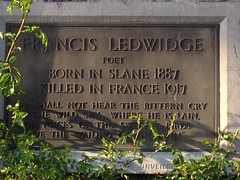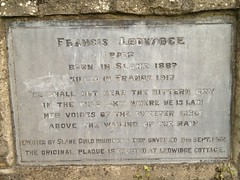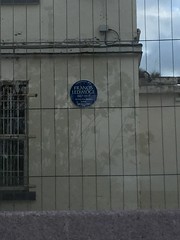Francis Ledwidge
Commemorated on 3 plaques
Francis Ledwidge poet born in Slane 1887 killed in France 1917. He shall not hear the bittern cry in the wild sky, where he is lain, Nor voices of the sweeter birds above the wailing of the rain
Ledwidge Cottage Museum, Drogheda Road, Slane, Ireland where they lived
Francis Ledwidge poet born in Slane 1887 killed in France 1917. He shall not hear the bittern cry in the wild sky where he is lain, nor voices of the sweeter birds above the wailing of the rain. The original plaque is erected at Ledwidge Cottage
Slane Bridge, Slane, Ireland where they was
Francis Ledwidge 1887-1917 ?? poet of the ?? stationed at Ebrington 1916 [full inscription unknown]
Ebrington Square, Londonderry, United Kingdom where they was stationed (1916)




